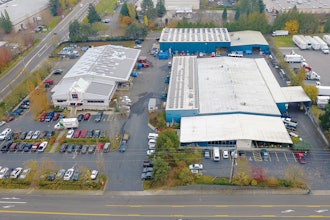SPRINGFIELD, Mo. (AP) -- The owner of a Missouri company seeking to open a horse slaughter facility said he has been working with federal food safety officials to modify equipment at their processing site so the facility can "humanely handle horses."
Rains Natural Meats vice president David Rains said he and his brother, company president Steve Rains, have been working with an equine consultant and the U.S. Department of Agriculture to prepare the company's plant in Gallatin for possible horse slaughter. He said he doesn't know how many horses the site would handle.
"We're not a big plant by any means," David Rains told The Springfield News-Leader (http://sgfnow.co/14uWLmc). "It'll be limited at this time."
It's unclear when or if the facility will get the required federal permit to process horses. The USDA did not immediately return a call Monday seeking comment.
The USDA last week, however, approved horse slaughter plants in Roswell, N.M., and Sigourney, Iowa, and expected to endorse another request soon.
Animal protection groups also filed a federal lawsuit last week seeking to stop the revival of domestic horse slaughter at commercial processing plants. The Humane Society's lawsuit named the Rains facility and other prospective plants in Rockville, Mo.; Woodbury, Tenn.; and Washington, Okla.
Horse slaughterhouses last operated in the U.S. in 2007 before Congress banned the practice by eliminating funding for plant inspections. Federal lawmakers restored those cuts in 2011, but the USDA has been slow in granting permits, citing the need to re-establish an oversight program.
In a written statement last week, the agency said it was legally required to approve Responsible Transportation's plant in Iowa.
Congress could still cut funding for horse slaughterhouse inspections, effectively reinstating the ban. Both the House and Senate agriculture committees have endorsed the idea, and the Obama administration's proposed budget for the 2014-2015 fiscal year also eliminates that funding. Another bill would ban horse slaughter facilities and prohibit exports.
Supporters of commercial horse slaughter, including Sen. Roy Blunt, R-Mo., say it's a good end-of-life option for horses whose owners no longer need or want them. Blunt, the top Republican on the Senate agriculture spending subcommittee, supported reversing the ban in 2011, saying it had led to an increase in abandoned and neglected horses in Missouri and elsewhere.
Rains said Gallatin-area residents have been generally supportive of his family's plans because they've seen the abandoned horses. And, while Americans generally don't eat horse meat, Rains said there's a major export opportunity to Europe and Asia.
"There's going to be a surprising domestic market, and there is an export market," said Rains. "There's some interest on the zoo side, too."
He also said their facility would not use a controversial captive-bolt gun to euthanize the horses, instead using a .410 shotgun.
Horses are "an extremely high quality protein source that's been used in other countries for a long, long time," Rains said. "It's a waste not to use it."






















